The Iranian nuclear issue is not any the closer to a denouement with UN Security Council Resolution 1929 of June 9 slapping additional sanctions on Iran, dismissed promptly as inconsequential by its President. The announced sanctions target Iran’s nuclear and missile programmes, as well as entities, banks and individuals involved in these programmes, besides banning certain categories of military supplies. The energy sector has been excluded, but the US may unilaterally impose some additional restrictions in this area. US attempt to maintain unanimity in the Security Council, necessary for its global leadership on non-proliferation issues failed, with negative votes from Brazil and Turkey. Inevitablly so as Brazil and Turkey had tried unsuccessfully to stave off the sanctions and re-open the diplomatic track by getting Iran to belatedly agree to part of its low enriched uranium stockpile being exchanged with French/Russian supplied 20% enriched uranium for use in its medical radio-isotope facility. Brazil and Turkey showed unusual political courage in attempting to pre-empt the US move in the UN Security Council and in backing Iran whose own actions and statements have been devious and confrontationist in many respects, even if on principle it has right on its side.
If Iran has obtained political support from some key nonaligned countries in the IAEA on the nuclear issue and could mobilize a weighty country like Brazil and a NATO member like Turkey to its side, it reflects both its diplomatic skills and widening differences on nuclear issues between the nuclear weapon states and others on the future shape of the global nuclear order, especially in the context of the projected “nuclear renaissance” driven by energy penury and climate change issues. The Iranian nuclear issue epitomises the defective nature of the Non-Proliferation Treaty, its discriminatory character and the inequitable global nuclear order it has created. It is an offshoot of the failure of the nuclear weapon states to disarm even as they have sought to impose increasingly tighter non-proliferation conditions on non-nuclear weapon states in order to keep the lid on the spread of nuclear weapon technology. This has exposed them to accusations of double standards in treating nuclear issues.
It might also reflect the calculation that steady acquisition of a nuclear option under the cover of a peaceful nuclear programme, and eventual attainment of even a status of nuclear ambiguity, can provide a shield against external aggression and threat of regime change. The Iraq war and the contrasting manner in which North Korea’s nuclear defiance has been treated could not have been lost on an Iranian regime locked in conflict with the West. As against this, it is precisely the example of North Korea that developed nuclear weapons clandestinely while being a signatory to the NPT- and withdrew from the Treaty legally- that makes the Iranian case particularly dificult to handle. Iran adheres to the NPT, its nuclear programme is under IAEA inspections and control, its enrichment activity is not debarred under the NPT- indeed it is asserting its legitimate rights to peaceful uses of nuclear energy under the Treaty- it denies any ambition to acquire nuclear weapon capability, with its spiritual leader going to the extent of declaring nuclear weapons un-Islamic, but the West remains extremely distrustful of its intentions, suspecting that it may have undeclared nuclear sites, and that it may be steadily acquiring the technical means to produce a nuclear weapon in not too distant a future. At that point, it is feared, it may withdraw from the NPT and declare itself a nuclear weapon state.
The Iraq war, justified for dressed up non-proliferation reasons, has made the international community much more resistant to use of force against states supposedly violating their non-proliferation obligations, and Iran is benefitting from this altered sentiment. Much stricter evidence is demanded, and the motives of those raising proliferation concerns are questioned. The search for a negotiated solution has been hampered by US refusal to talk directly to Iran- designated as part of an “axis of evil” etc- the not so veiled US threats of military action against it and open funding of Iranian dissidents for overthrowing its clerical regime. The situation is further complicated by Israel and the US Jewish lobby mounting relentless international pressure on Iran to cease its suspicious, but permissible, nuclear activity. Israel’s touted readiness to militarily strike at Iranian nuclear installations, in a repeat of its strikes against Iraq in the past and Syria more recently, makes a negotiated settlement under duress less likely. Worse, Israel’s own nuclear status being a matter of acute controversy in the larger West Asian region, the argument of US/Western double standards in dealing with the reality of Israel’s nuclear arsenal and its non-NPT status vis a vis Iran’s as yet non-existent weapon capability and NPT status, acquires force.
There is no easy way out of the Iranian nuclear mess facing the international community. If the US/Western credibility in dealing with Iran is suspect in the eyes of many because of diplomatic mistakes as well as political and nuclear double standards, Iran’s own conduct merits censure. The Iranian regime is very difficult to deal with in any case; the decision making process in Iran’s faction ridden polity is quite obscure. President Ahmadinejad has excelled in unsavoury rhetoric against Israel, his demogoguery on the Holocaust ill-befits the leader of a major country, his strident position on the Palestinian issue is unnecessarily provocative. Iran’s nuclear intentions can legitimately be viewed with suspicion. Many objective observers believe Iran is pursuing the nuclear option under cover of establishing a technological base for its as yet non-existent civilian nuclear energy programme. The enriched uranium it is producing is not meant to fuel any indigenous civilian nuclear power facility being built, as the Russian supplied Bushehr plant will be run with fuel provided by Russia. The views of experts differ on how far Iran is away from mastering the technology to buld a bomb, but there is little dispute over the direction of its programme.
On this complex Iranian isssue India has played its cards as well as it could. Barring its first vote in the IAEA when it could and should have joined Russia and China in abstaining, its later affirmative voting need not be faulted. India has rightly asked for clarification of issues between Iran as NPT signatory and the IAEA, while opposing the emergence of another nuclear power in the region. It was a show of confidence on India’s part to state in Washington during the April Nuclear Security Summit, bearing in mind US determination to impose further sanctions on Iran, that sanctions were an ineffective tool and that ordinary individuals should not suffer on their account. India has, as it should, tried to maintain its lines of communication open with Iran, but it makes no sense for India as a non-NPT state to wade into the Iran imbroglio. For over more than three decades India was alone in facing the consequences of its nuclear policy, suffered sanctions that continue even today in some areas, and got no support from Iran or our nonaligned friends. We should remember that.
Published in Mail Today on 15th June, 2010

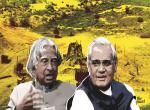
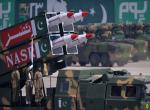
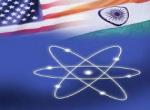
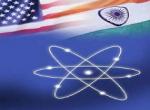
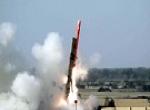
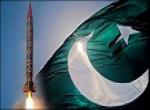
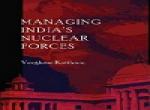
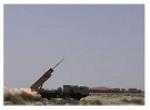
Post new comment